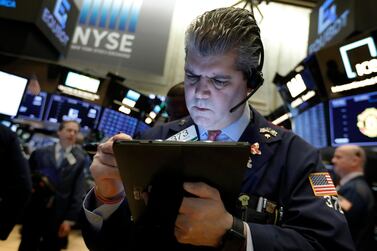The dollar rally stumbled at the end of this month, meaning a more cautious approach should be adopted towards safe havens going forward.
The two dominant themes: the US-China trade war story and Brexit are set to be delayed and this should act as resistance on any further upsides in the dollar and safe havens, such as the Japanese yen. Last week, US President Donald Trump extended the March 1 deadline for the trade deal, and markets will perceive this extension as progress being made.
This resulted in an immediate boost to US equity markets and higher yielding assets such as the Kiwi and Australian Dollar, as optimism saw risk on sentiments flourish. The Dow Jones index closed its ninth consecutive week higher and now sets its sights on that September 2018 high at 26,951 as the next upper resistance level. Similarly, the S&P 500 index is on the back of two consecutive months of gains with 2,940 forming the next resistance level on the upside.
At the start of the month, the US dollar enjoyed an eight-day rally, but that was cut short on February 12 with the greenback retracing below 96.50 levels after testing highs of 97.20. Expect consolidation in this channel above 96 but exercise caution against building too bullish a dollar view until we get the full details of the finalised trade deal.
Improving US numbers will continue to lend support to the dollar prospects in the short term and there are a few key releases through the first few weeks of March that we are watching out for starting with Thursday's quarter-on-quarter, fourth quarter gross domestic product figure. This data was due out in January, however, due to the US government shutdown, its release was delayed.
The data should show that fourth quarter US output is expected to grow at 2.6 per cent, lower than the 3.4 per cent third-quarter print from December. The GDP numbers will be followed by some key personal spending and income figures due out on Friday along with month-on-month price consumption expenditures (PCE) deflator, the Federal Reserve’s preferred gauge for US inflation.
Part of the impressive rally in US equities is due to the improving earnings season, which will be in its final week this week.
Major US retailers are announcing, which could further boost in US indices. Looking further ahead at the US economic calendar, we await the US nonfarm payrolls report on Friday (expected at 180,000 new jobs during February), along with the key US inflation print on Tuesday.
Markets are currently pricing in 0.2 per cent on the core month-on-month print with 2.1 per cent expected year-on-year. Any reading above these figures would immediately see strong upside pricing action in the dollar and vice versa.
Across the pond, it is seemingly more likely that Brexit will be delayed past its original deadline of March 29. Prime Minister Theresa May once again delayed a key parliamentary vote this week, similar to the delay we saw in December. Members of parliament are now expected to vote on the deal on March 12.
With such a tight window before the deadline, it is being reported that senior European politicians are considering offering the UK a two-year extension of Article 50. Any delay would need to be agreed on by all the EU member states but this would definitely spark new buying rallies in the British pound, as this would be perceived as positive because of the reduced risk of a no-deal Brexit.
The Dubai Gold & Commodities Exchange British Pound/USD contract was trading above the 50 week moving average at 1.3060 at the time of this writing. A delay to the Brexit deadline would cause a move upward of 1.32 to 1.33 levels in the immediate short-term. Again, it would prove prudent to await developments from the UK this week before building any new pound strategies.
Gaurav Kashyap is a market strategist at Equiti Global Markets. The views and opinions expressed in this article are those of the author and do not reflect the views of Equiti








